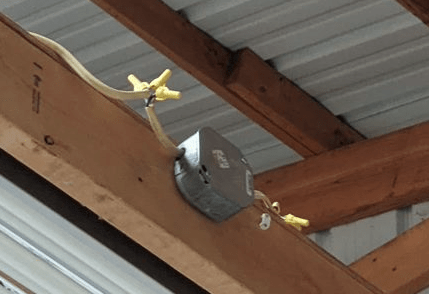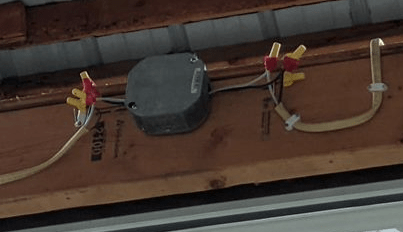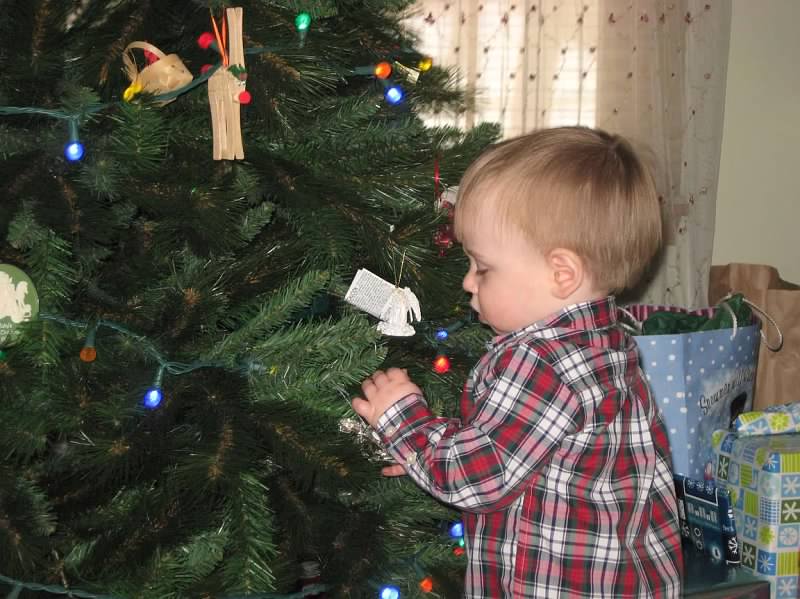Electricians are trained to install wiring so that it is safe and will not cause fires or electrocutions. These installations must meet or exceed the requirements set forth in the Nebraska State Electrical Act. This training and repeated Continuing Education training makes it easy for them to easily spot defective wiring.
These are some of the telltale signs that will you that your wiring may be getting ready to fail.
Visibly Damaged or Exposed Wiring.
Most any electrician that works in a home will come across wiring that has open splices or fraying of the outer covering caused by chewing animals or furniture or equipment rubbing along the length of the wire. While both are serious contenders for failure, the open splice is the most serious. You may notice that wire splices are always contained in a box. That box is not designed to prevent a failure but to prevent the splice from catching the area around it on fire. If the splice inside of the box does happen to come loose and start arcing, the box will not give the arcing failure enough oxygen to burst into flames. Both above should be repaired as soon as possible.
Scorching and Discoloration
While it is normal for wiring to get slightly warm when used consistently or with a heavy load such as equipment that contains a heater, it should not be so hot that it is uncomfortable or that it causes any damage to the outlet. If you do come across this, stop using the outlet immediately.
An outlet that is showing discoloration is no longer good and is a hazard. It will no longer be able to make a tight connection and further use will make the connection more likely to cause a fire.
“Faulty wiring is one of the five most common causes of fires in homes. And properly installed wiring can prevent many of these fires.”
Strange Smells and Burning Odors
Burning smells are not always an indication of an electrical problem. Some furnaces will make a burning smell when starting up for the first time at the beginning of heating season. Cooking many times create burning smells. But a burning smell that you cannot determine the cause of should be a real concern to you. If you smell burning, disconnect any large equipment such as any type of heater and stay vigilant. If the smell gets worse and you investigation cannot find the source of the smell, it may be time to call the fire department.
“Are your smoke detectors over 10 years old? If so, they are no longer considered safe, and the manufacturer considers them past the useful life of the product.”


Strange Noises from Outlets or Fixtures.
Strange sizzling noises can often be caused by a loose connection. This sizzing will often include flickering of lights or equipment. Treat this the same as you would burning smells.
“The large electrical demand of portable electric heaters causes most fire ‘Close Calls’ “
Tripping of Circuit Breakers.
Circuit breakers are designed to shut off power if the circuit has too many devices on it. If the circuit breaker trips, first look to see what electric equipment is no longer running. If there is a large appliance or portable heater on the circuit, this is likely the culprit and you should remove the device from the circuit and then reset the circuit breaker. All is operating as designed. If the breaker continues to trip, now is the time to leave the circuit off and call an electrician.
Have You Noticed Any of these Signs?
You might consider a whole house inspection by one of our highly trained technicians’ who will come out and review the wiring in your home including using an infrared camera scan to spot telltale heating where wiring is set to fail.
More Info from The U.S. Consumer Product Safety Commission




